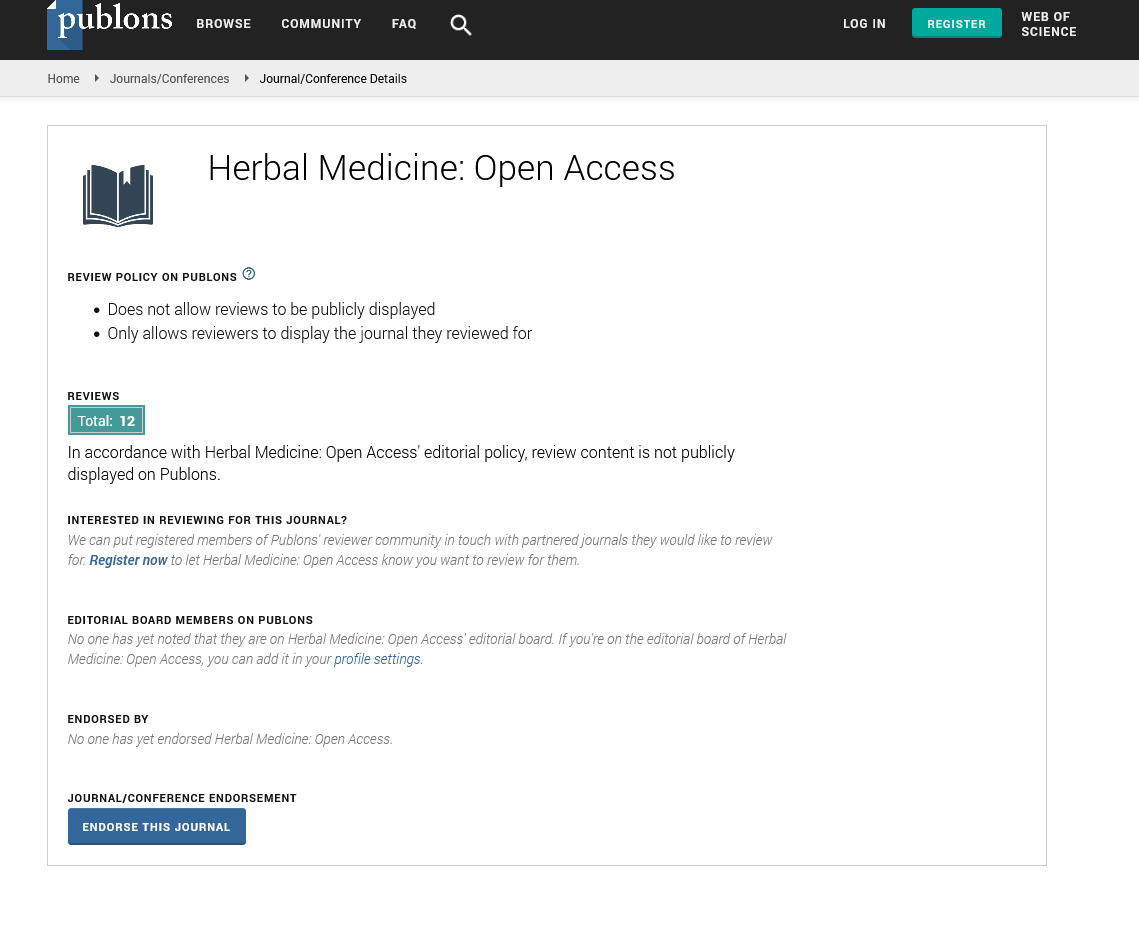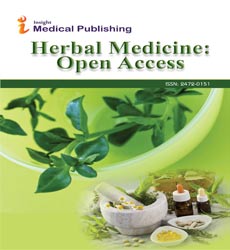Abstract
GC-SM analysis composition and antibacterial activity of Cucurbita pepo (Pumpkin) seeds harvested in Western Algeria
Traditional medicine became an alternative avoiding chemicals’ side effects. Currently, Research are focused on the natural substances to protect environment. Cucurbita pepo seeds oil has antioxidant and antibacterial properties [1-3]. This study aimed to determine composition of C.pepo seeds oil and assessing its antibacterial effect. The yield of oil extraction was 26.86 %. Composition analysis was carried out by gas chromatography-Mass spectrometry (GC-MS). C. pepo seeds oil extract was tested on bacterial growth of Escherichia coli, Staphylococcus aureus, Klebsiella pneumonia and Pseudomonas aerogenosa. GC-MS analysis showed saturated fatty acids (palmitic acid 13.1 % and myristic acid 8.8 %), unsaturated fatty acids (linoleic acid 45 % and oleic acid 19.6 %) and sterols (β-sistosterol 47 %, stigmasterol 23.6 % and campesterol 21.5%). C. pepo seeds oil extracts, used at different diluted concentrations (6.25, 1.56 and 0.19 mg/mL), showed high antibacterial activities against E. coli, S. aureus and K. pneumonia with zones of inhibition (25, 23 and 17 mm), (21, 20 and 15 mm) and (17,15 and 15 mm) respectively but P. aerogenosa was slightly sensitive (10, 10 and 10 mm). Minimum inhibitory concentration (MIC) of C. pepo seeds oil extracts were 0.012 mg/mL (E. coli and S. aureus), 1.56 mg/mL (P. aerogenosa) and 0.19 mg/mL (K. pneumonia) whereas commercial pumpkin seeds oil’s MIC were 6.25 mg/mL (P. aerogenosa) and 1.56 mg/mL (K. pneumonia). The C. pepo seeds oil extract could be used as bio herbicides replacing chemicals known for their high toxicity on the environment.
Author(s): Berroukche Abdelkrim
Abstract | Full-Text | PDF
Share this

Google scholar citation report
Citations : 271
Herbal Medicine: Open Access received 271 citations as per google scholar report
Herbal Medicine: Open Access peer review process verified at publons
Abstracted/Indexed in
- Google Scholar
- JournalTOCs
- China National Knowledge Infrastructure (CNKI)
- Directory of Research Journal Indexing (DRJI)
- WorldCat
- Publons
- Secret Search Engine Labs
- Zenodo
Open Access Journals
- Aquaculture & Veterinary Science
- Chemistry & Chemical Sciences
- Clinical Sciences
- Engineering
- General Science
- Genetics & Molecular Biology
- Health Care & Nursing
- Immunology & Microbiology
- Materials Science
- Mathematics & Physics
- Medical Sciences
- Neurology & Psychiatry
- Oncology & Cancer Science
- Pharmaceutical Sciences


